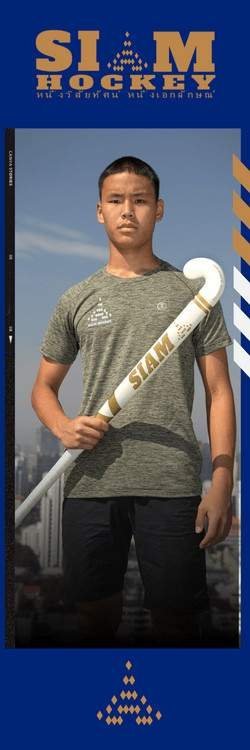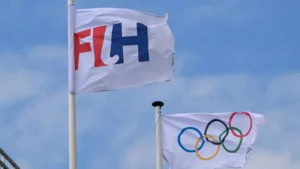You may have heard the term ‘clean sport’ used in conversations about anti-doping, or around the United States Anti-Doping Agency (USADA). But do you really understand what clean sport means? It’s about so much more than just peeing in a cup to test for banned substances. Here, Dr. Jennifer Royer, Senior Director of TrueSport and Awareness at USADA, is explaining exactly what clean sport means, and why it should matter to you.
Clean Sport is about Fairness and Integrity
Clean sport essentially means that athletes compete without the advantage of performance-enhancing drugs, but even more importantly, it’s about bringing integrity and fairness to sport. “We believe that athletes deserve the right to earn success by their own hard work, effort, and dedication to their sport,” says Royer.
USADA Exists to Protect Athletes
Anti-doping efforts, from education to testing, allow organizations like USADA to protect clean sport and athletes’ right to a fair playing field. “If we don’t police sport and hold participants accountable, it creates a culture where it’s very difficult to succeed by merit alone. Without anti-doping, sport could easily become a doping arms race where athletes of all ages feel like they need to use dangerous substances to stand a chance in competition.”
Anti-Doping is About Your Health, Too
Competing clean isn’t just about fairness, it’s about your own health and wellness. Royer notes that many banned substances can actually be dangerous for an athlete, especially when ingested during hard efforts. Certain painkillers, for example, can make you push beyond what your body can handle, which can result in career-ending injury.
Debunking the Old Excuses
You may have heard stories about people who were caught using banned substances in the past offering the excuse of “everyone else was doing it.” But in hindsight, many of those same athletes regret those decisions and wish they had made different choices. Here, Tyler Hamilton, a former professional cyclist, explores his decision to use PEDs, the physical and psychological effects, and why he would do things differently.
Understand the Cost of Doping
While it’s easy to see the impact of doping on the person who is eventually caught and sanctioned, it’s important to remember all the other athletes impacted by that person’s decision. Every time someone who dopes steals a moment on a podium, clean athletes lose the moment and the medal they earned and deserved.
“As recently as the 2022 Winter Games in Beijing, athletes were robbed of their moment. They were robbed of the recognition of the years of effort put in by themselves and their coaches, families, and communities,” says Royer. “They didn’t get a medal moment because doping robbed an entire world of a fair and just Olympic and Paralympic Games cycle.”
You Don’t Need Shortcuts
The clean sport mentality extends beyond doping: It’s about any shortcuts to success in sport. “Don’t take shortcuts, and that doesn’t just mean banned substances,” says Royer. “It means everything from not cheating in a game to lying about finishing your reps at practice. This is what ethical participation in sport means.”
Ultimately, Clean Sport is About Respect
At the end of the day, athletes deserve to believe that they are competing in a clean sport. The world also deserves to watch athletes succeed without wondering whether their story is too good to be true. We deserve to have champions we can trust.
“Clean sport is about respect for your competitors. It’s about respect for yourself. It’s about respect for sport,” says Royer. “We want athletes to respect their hard work and earn their success. We don’t want athletes who skirt the system to cheat and get a leg up in a way that damages the people involved in the sport as well as their own health.”
Don’t Be Afraid to Report Misconduct
If you suspect an athlete is doping, Royer says that it’s important to share that information with someone you can trust. It may be a coach, it may be your sport’s governing body, or you can even use USADA’s Play Clean Tip Center to send a completely anonymous tip. “When you report doping violations, you are standing up for a global sports system that is fair and just, and one that is worth participating in,” says Royer.
Takeaway
Clean sport is about integrity and respect. It’s about authenticity and fairness. Even if you don’t know the ins and outs of anti-doping rules, you can start by standing up for integrity in sport and holding yourself and others accountable for competing fairly.
About TrueSport
TrueSport®, a movement powered by the experience and values of the U.S. Anti-Doping Agency, champions the positive values and life lessons learned through youth sport. TrueSport inspires athletes, coaches, parents, and administrators to change the culture of youth sport through active engagement and thoughtful curriculum based on cornerstone lessons of sportsmanship, character-building, and clean and healthy performance, while also creating leaders across communities through sport.
For more expert-driven articles and materials, visit TrueSport’s comprehensive collection of resources.
This content was reproduced in partnership with TrueSport. Any content copied or reproduced without TrueSport and the U.S. Anti-Doping Agency’s express written permission would be in violation of our copyright, and subject to legal recourse. To learn more or request permission to reproduce content, click here.
by NCAA









